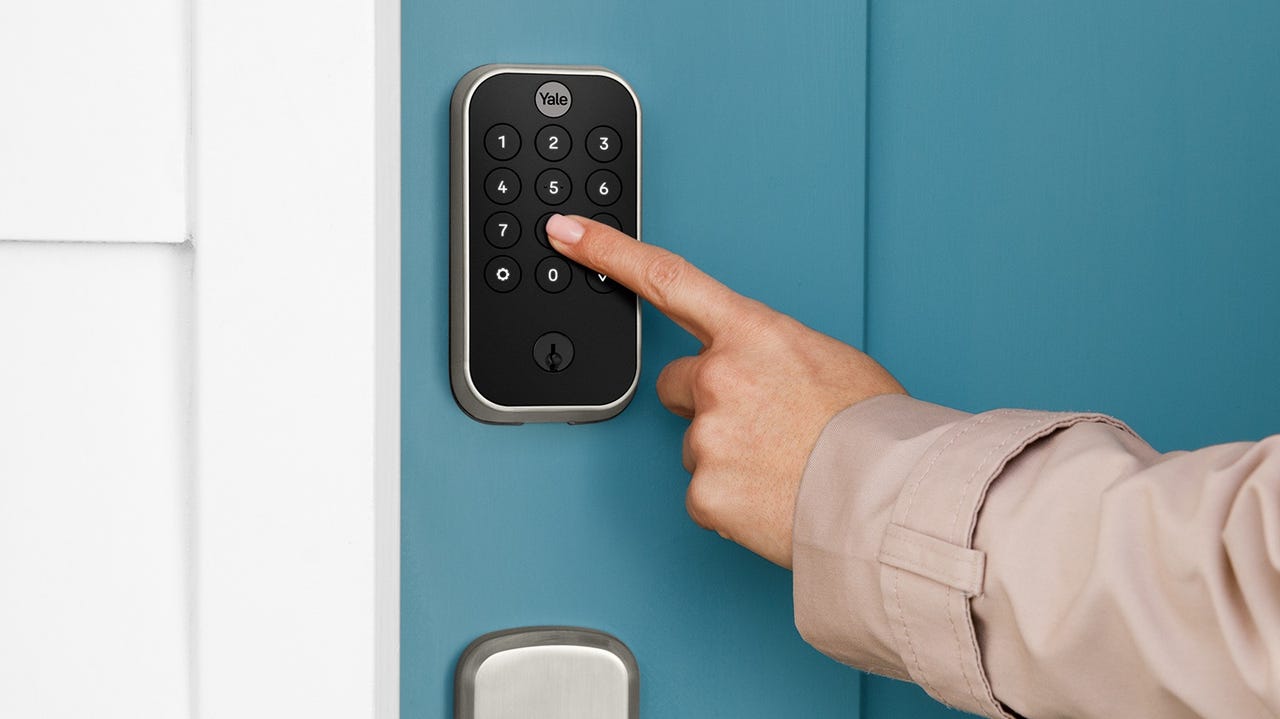'ZDNET Recommends': What exactly does it mean?
ZDNET's recommendations are based on many hours of testing, research, and comparison shopping. We gather data from the best available sources, including vendor and retailer listings as well as other relevant and independent reviews sites. And we pore over customer reviews to find out what matters to real people who already own and use the products and services we’re assessing.
When you click through from our site to a retailer and buy a product or service, we may earn affiliate commissions. This helps support our work, but does not affect what we cover or how, and it does not affect the price you pay. Neither ZDNET nor the author are compensated for these independent reviews. Indeed, we follow strict guidelines that ensure our editorial content is never influenced by advertisers.
ZDNET's editorial team writes on behalf of you, our reader. Our goal is to deliver the most accurate information and the most knowledgeable advice possible in order to help you make smarter buying decisions on tech gear and a wide array of products and services. Our editors thoroughly review and fact-check every article to ensure that our content meets the highest standards. If we have made an error or published misleading information, we will correct or clarify the article. If you see inaccuracies in our content, please report the mistake via this form.
Putting off installing smart locks? Here's why I'm glad I finally did


For the last few months, my local community Facebook group along with the Ring Neighbors has been full of people posting videos from their video doorbells, floodlights and other home security cameras. The videos are usually of a masked person or two walking up and down driveways in the middle of the night, with a flashlight, looking inside vehicles that are parked outside.
Occasionally, those same videos show cars being gone through, belongings being taken -- or even worse, a stolen vehicle disappearing out of the frame.
Also: The two smart devices I will never install in my house
Featured
My wife and I park our cars inside a garage, so while we were unsettled by the videos and posts, we weren't concerned for our personal property. That is, until a video was posted that showed a home invasion just a few blocks from where we live.
The homeowner was woken up by two people who busted down the front door and robbed the couple living there. Perhaps there's more to the story of why that particular house was targeted, or maybe, just maybe, it's a sign of things to come.
That day I decided I needed to install a deadbolt on the door that goes between our house and the garage, a task that's been on my honey-do list for at least 5 years. I'd put it off because I wasn't sure how to go about drilling a hole in the door to create a spot for the deadbolt.
Also: SwitchBot Lock: A smart lock solution for renters
I also wanted to swap out a standard door knob on a door that leads to my office, which is in a detached building, for something that's always on, connected and can be automated to lock on a set schedule. I'd gotten complacent in recent months and stopped locking that door simply because I really didn't want to deal with carrying around keys.
It was around this time that Yale was getting ready to announce the Yale Assure Lock 2 -- a smart deadbolt with swappable smart modules for connecting directly to Wi-Fi, and eventually the new smart home platform Matter. It also supports HomeKit right out of the box. Perfect.
For the other door, well, it's made of metal. And I didn't really want to figure out what it'd take to put a deadbolt in a metal door. So, I searched for a smart lock that could replace a standard door knob. It turns out Yale has smart locks for that exact situation. They're technically called lever locks. More specifically, I found the $299 Yale Assure Lever that would work for what I needed.
Yale offered to send me samples of both to test, but while I waited for them to arrive, I researched what the process was like to add a deadbolt to a door. And to my surprise, it's pretty straightforward as long as you buy the right tools. You'll need an electric drill, and a $25 Door Lock Installation Kit that comes with a template and all of the drill bits and pieces you'll need to accurately and easily create the required holes in your door. I also purchased this cool $13 gizmo to help properly cut out the necessary holes on the door jam.
Using the aforementioned tools, I installed the Assure Lock 2 in just a couple of minutes. It wasn't a perfect install, as you can see from the photo above, but it works all the same.
Also: How I made my home smart on a budget (and how you can, too)
The setup process was seamless, requiring that I connect the lock to my home's Wi-Fi network, and add it to Apple's HomeKit platform. During the lock setup, I created access codes for everyone in the home. My favorite part of the Assure Lock 2 is that the touchscreen turns off when the lock isn't in use, making it look like a blank, black panel. After you wake the lock by pressing on the Yale logo, the number pad illuminates and is ready for a code to be put in. (There is another version of the Assure Lock 2 that uses a more traditional keypad if you prefer that.) The minimal design expands beyond the touchscreen interface, with the lock itself -- inside and out -- taking up very little space on your door.
Yale is readying an $80 Smart Module to add Matter support to the Assure Lock 2 that takes the place of the Wi-Fi module, and makes the lock compatible with all Matter devices, services and platforms.
As for the Yale Assure Lever, well, the installation process was easy. If you've ever swapped out a door knob, you're already a pro at installing the Lever. If you haven't, you're still a pro. It's just a few screws and following instructions.
The Assure Lever doesn't connect directly to your home's Wi-Fi network. Instead, it uses theAugust Wi-Fi Bridge to facilitate remote access of the lock. I've never had a good experience with any of Yale's products that rely on the August Wi-Fi Bridge, but after a month-plus of use, I've yet to run into any issues with the Assure Lever being unresponsive.
Also: How to save on utility bills with 4 smart home devices
Admittedly, I could have purchased a regular deadbolt and left the key-only doorknob and called it a day. However, what makes smart locks so appealing to me is the ability to automate my home's security.
I have a Ring Alarm Pro system installed in my home. There are door sensors, window sensors, and a couple of motion devices. Each night, the alarm automatically arms itself in Home mode as part of a Goodnight routine I have setup up in the Apple Home app. That routine also includes turning off all the lights, and locking all of our doors, including both Yale locks. And in the morning, when I disable the alarm, I can have the doors unlocked. Better yet, I don't have to worry about carrying around keys to get into my office.
Also: How to unlock the Yale Assure Lock SL when the batteries die
Both of Yale's locks have proven to be reliable and welcome additions to the security of my home, and more importantly, my family. With the versatility of the Assure Lock 2, between support for multiple smart home platforms and the design choices, you're getting a lock that looks and works how you want.
As for the Assure Lever, it's expensive. More expensive than the Assure Lock 2, in fact. But it's a viable solution for someone who doesn't want to or can't add a deadbolt to a door.